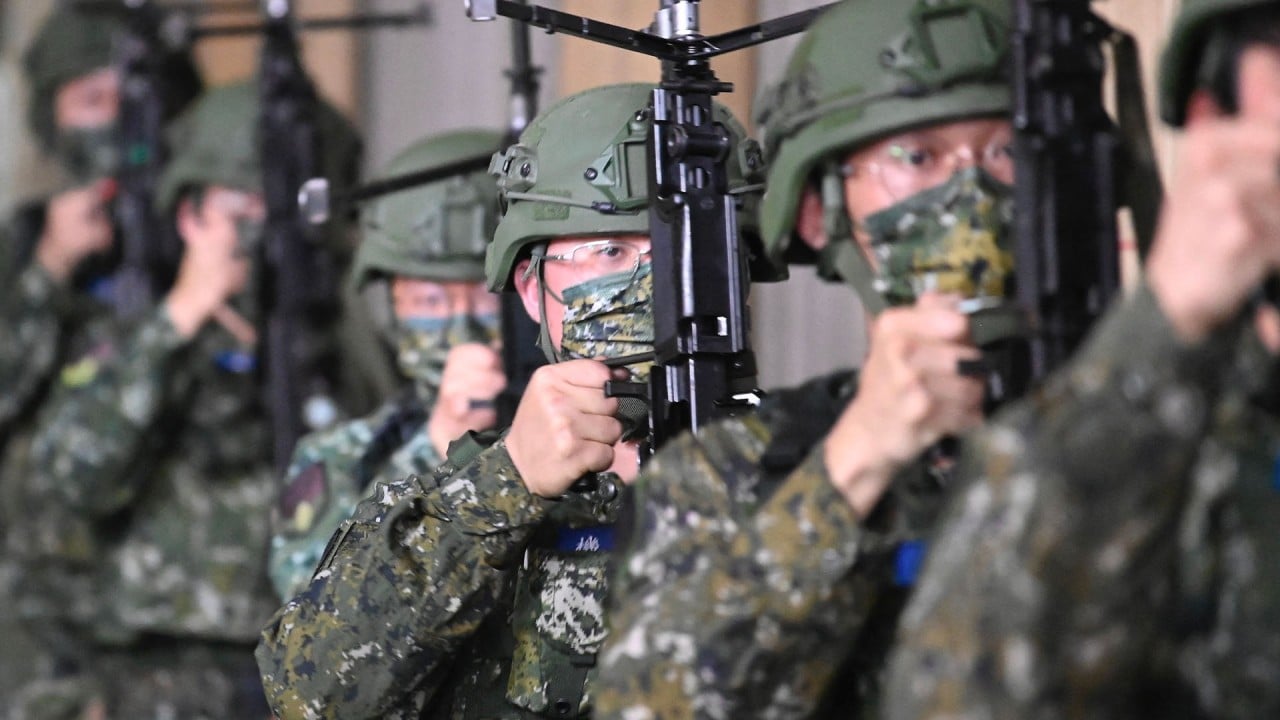
3 reasons China will not forcibly reunify with Taiwan any time soon
- While Russia’s invasion of Ukraine has sparked fears of Taiwan suffering a similar fate, there are good reasons for Beijing not to reunify through force
- China’s global image problem, the need for external stability and a stated goal of peaceful reunification should put Zhongnanhai off any thought of invading
If the leaders in Zhongnanhai have agreed on a list of top priorities for China this year, armed reunification with Taiwan is unlikely to appear on that list.
A key geopolitical lesson that the war in Ukraine offers for China is that international opinion matters. Russia is seen as the aggressor and has lost the battle for international opinion and support. Its military operations in Ukraine are crippled by international isolation and economic sanctions.
Russia’s fate is not lost on the Chinese leadership. What worries Beijing more is that the country already faces a severe global image problem.
China needs more than better communication to fix its Africa image problem
The more things change, the more Xi focuses on stability
What Beijing needs now is not war but steady growth, job creation and increased social welfare to keep Chinese people satisfied and employed amid economic uncertainty. To do so, the Chinese leadership needs to prioritise building stronger trade relations with China’s economic partners and restoring trust and confidence among its neighbours.
What regional countries want to see more of are Chinese cargo ships instead of warships. Making a move on Taiwan would be a costly distraction and an unwise provocation that would undo China’s plans for stability.
Chinese leaders’ emphasis on maintaining peaceful cross-strait relations carries historical logic. In Chinese history, civil wars are often associated with turbulence and chaos.
An illustrative example is the Chinese civil war fought between the Communists and Nationalists. Under the mantra that Chinese people should not fight against their own, the Communist Party criticised the ruling Nationalist government for throwing the country into the cauldron of civil war and bringing more suffering to the people.

Peaceful reunification with Taiwan would lend greater credence to Beijing’s efforts at projecting an image as a benign, responsible global power. It would also help to bring clarity to China’s intentions and ambitions.
China’s image problem, the need for stability to address domestic woes and the weight of history should weigh on Beijing’s strategic calculations. These should caution Chinese leaders against an invasion of Taiwan. Reunification with Taiwan is just one of many priorities and issues that leaders in Zhongnanhai have on their agenda.
However, the above strategic considerations would only work barring any unexpected geopolitical developments or crises that might exhaust China’s patience or violate one of its “red lines”. Should Taiwan declare independence or the US increase its military presence in the Taiwan Strait, Beijing will not hesitate to use force, whatever the costs might be.
Michael Zhou is pursuing a master of science in contemporary Chinese studies at the University of Oxford


